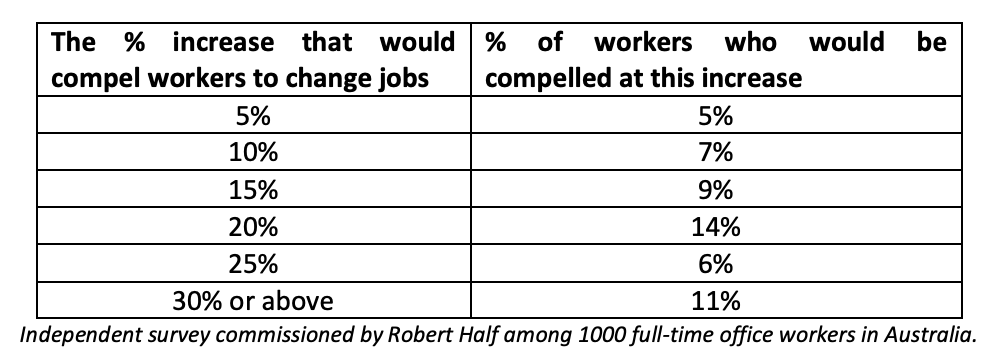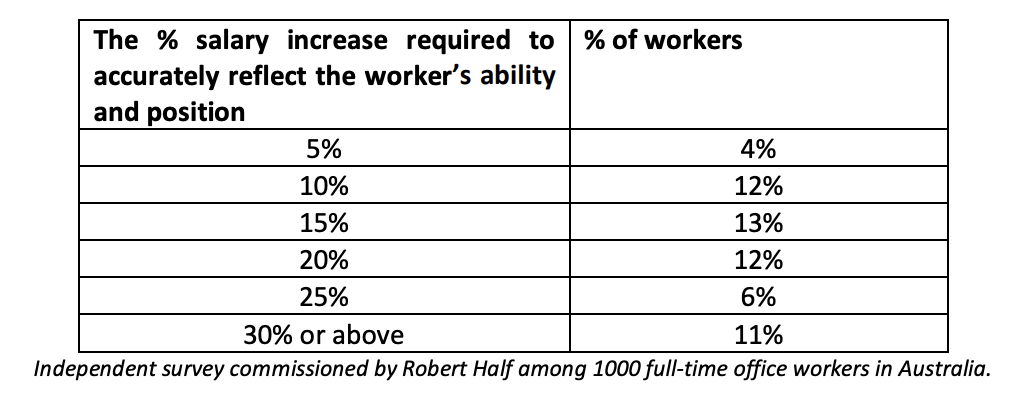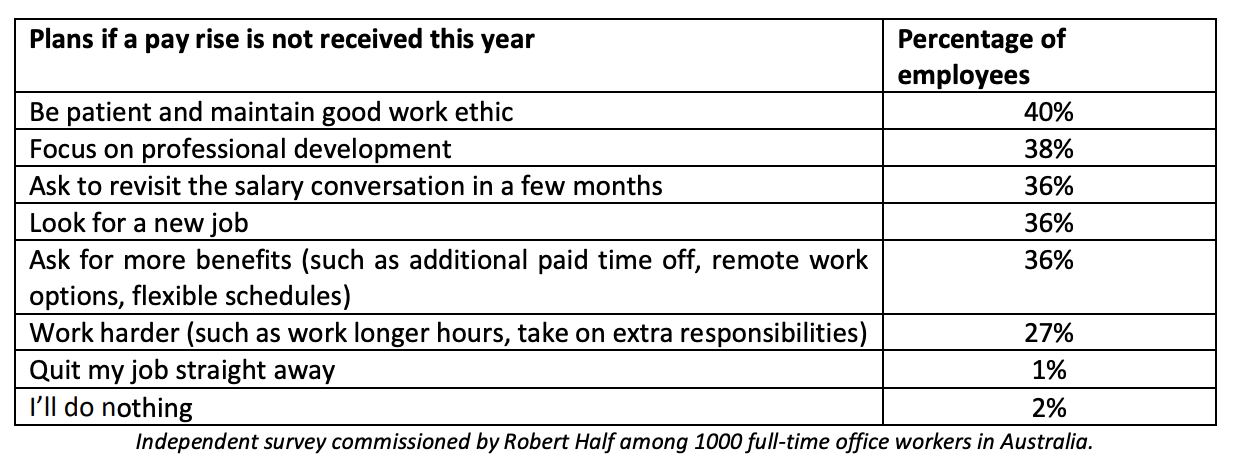
Many workers feeling undervalued at work, report finds

Half of Australians will leave their current job for higher pay amid strong feelings of being undervalued at work, according to a new poll from Robert Half.
Its findings revealed that 52% of workers would transfer to another employer that offered a higher salary.
Another 32% said they would change jobs without a salary increase as long as it was the right opportunity, while only 16% are content in their current role and would not move for higher pay.
According to the report, the average salary increase that can make employees resign is 22%. But 14% of employees said they would leave even if they were offered a 20% salary increase.

The findings echo a recent report from Gartner that showed compensation is still one of the top drivers of attraction and attrition in Australian workplaces.
"It's clear that money still talks," said Nicole Gorton, Director at Robert Half, in a statement.
According to Gorton, these pay-driven intentions to leave come in the wake of feeling undervalued at work.
The Robert Half poll found that only 42% of employees agreed they were paid appropriately.
On the other hand, 58% of employees believe that a salary increase would better reflect what they bring in the workplace. In fact, 37% of them believe that a 10 to 20% pay hike is needed to accurately reflect their ability and position.

"The research indicates that many workers feel undervalued, highlighting a gap between employee expectations and current compensation levels," Gorton said.
She said this can be due to stagnant wages despite more responsibilities or a perception that their compensation falls behind industry standards.
"Employers need to pay close attention to these sentiments and ensure they are not only offering competitive salaries that reflect the true value employees bring, but also clearly communicating what competitive compensation means for their individual employees," she added.
But Gorton noted that the ongoing cost-of-living crisis is making some Australians prioritise job security.
According to the poll, 40% of employees consider having a secure job equally important as salary. Another 39% place job security at a higher level than their pay.
Only 21% of employees said they were prepared to prioritise pay ahead of having secure work.
"While salary remains a key consideration, job security is also a number one priority for many workers, especially in the current economic climate," Gorton said. "Companies that can offer both competitive compensation and a stable work environment will be best positioned to secure and sustain their workforce."
The findings come amid a recent report of a "salary dilemma" in Australian workplaces, where employees demand higher pay from employers who are facing budget constraints.
In a previous Robert Half survey, 36% of employees said they will look for a new job if they don't get a pay rise this year, with another 36% saying they will ask for more benefits.

Gorton previously warned that failing to recognise and reward employees will be a "costly oversight" for organisations.
"While salary increases aren't always feasible, open communication, robust benefits packages and professional development opportunities are necessary for maintaining morale, engagement and loyalty," she said in a previous statement.
"After all, competitive compensation and comprehensive rewards are essential for attracting and retaining top talent as well as remaining an employer of choice."